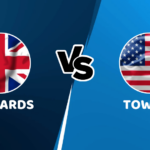Language can be a bit tricky, especially when it comes to seemingly similar words like “dreamed” and “dreamt.” Both are past tense forms of the verb “dream,” but they aren’t always used interchangeably. In this article, we’ll break down the various aspects that set dreamed vs dreamt apart, offering a practical understanding of their usage.
What is the Form and Structure of Dreamed vs Dreamt?
Here is a quick table for better understanding:
| Aspect | Dreamed | Dreamt |
|---|---|---|
| Form | Regular verb ending | Irregular verb form |
| Structure | Base verb + -ed | Base verb + -t |
| Example | She dreamed of success. | He dreamt of a distant land. |
In terms of how they look and sound, “dreamed” is the regular choice, while “dreamt” takes a less common, irregular form.
What are the Regional Variations?
The choice between dreamed vs dreamt often depends on where you’re from. British English tends to lean towards “dreamt,” while American English favors “dreamed.” But it’s worth noting that both are generally accepted in either dialect.
| Aspect | Dreamed | Dreamt |
| British English | Less common | More common |
| American English | More common | Less common |
Quick Tip: If you’re in the U.S., say “dreamed.” If you’re in the U.K., use “dreamt.” It’s that simple – just match your location with the right word!
What is the Grammatical Usage?
Both “dreamed” and “dreamt” work as past tense verbs. The one you choose often comes down to personal preference or the norms in your region.
| Aspect | Dreamed | Dreamt |
| Past Tense | He dreamed of a distant land | She dreamt of a better future |
Participial Adjectives:
When used as participial adjectives (describing a noun), “dreamed” is more commonly used.
| Aspect | Dreamed | Dreamt |
| Participial Adjective | The dreamed landscapes were mesmerizing | The dreamt memories lingered in her mind |
Examples for Clarity:
Let’s look at a few examples to better understand the difference:
- Last night, I dreamed about winning the lottery.
- She often dreamt of her childhood home.
How to Use of “dreamed” and “dreamt” in Sentences?
The usage of “dreamed” and “dreamt” in sentences to understand how they can be applied:
Dreamed:
- Last night, I dreamed about exploring a magical forest.
- The scientist dreamed of groundbreaking discoveries that would change the world.
Dreamt:
- She often dreamt of traveling to exotic destinations.
- In his sleep, he dreamt vividly about a parallel universe.
Both can be used:
- They dreamed of success throughout their journey.
- We’ve dreamt about this moment for years.
What is the main difference between “dreamed” and “dreamt”?
The main difference lies in their origins and regional preferences. “Dreamed” comes from Old English, while “dreamt” is rooted in Middle English, making the choice often dependent on personal preference or regional norms.
Conclusion:
In conclusion, choosing between “dreamed” and “dreamt” is usually up to what you like or where you come from. Knowing these little differences helps you handle English better, showing how it’s a bit complex and influenced by history, where you live, and personal choices.


